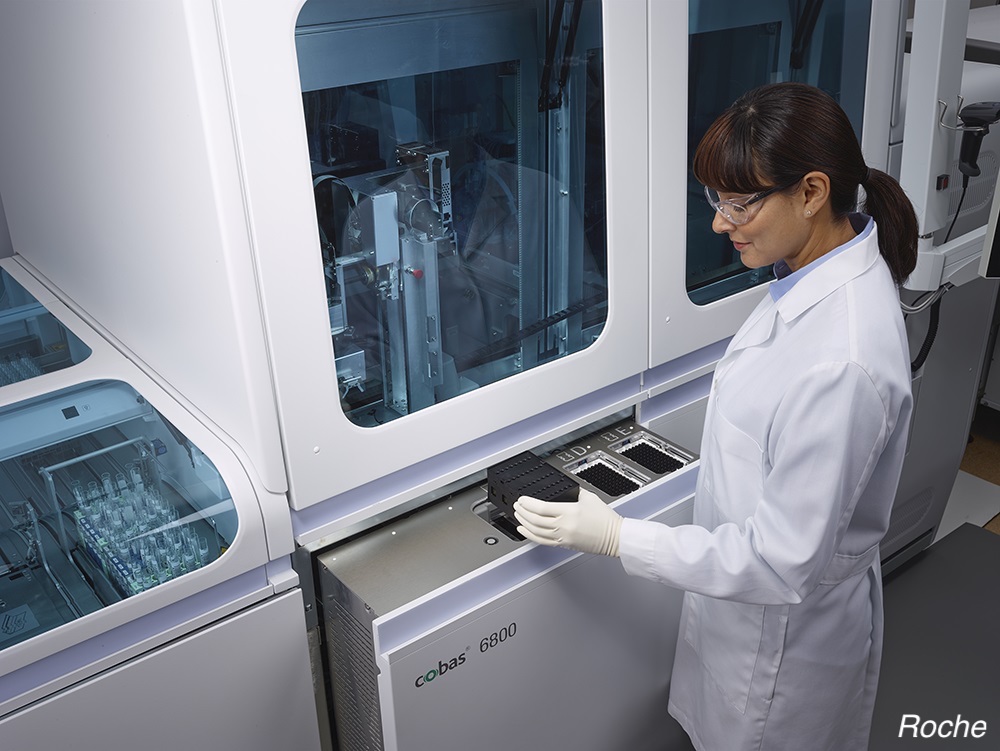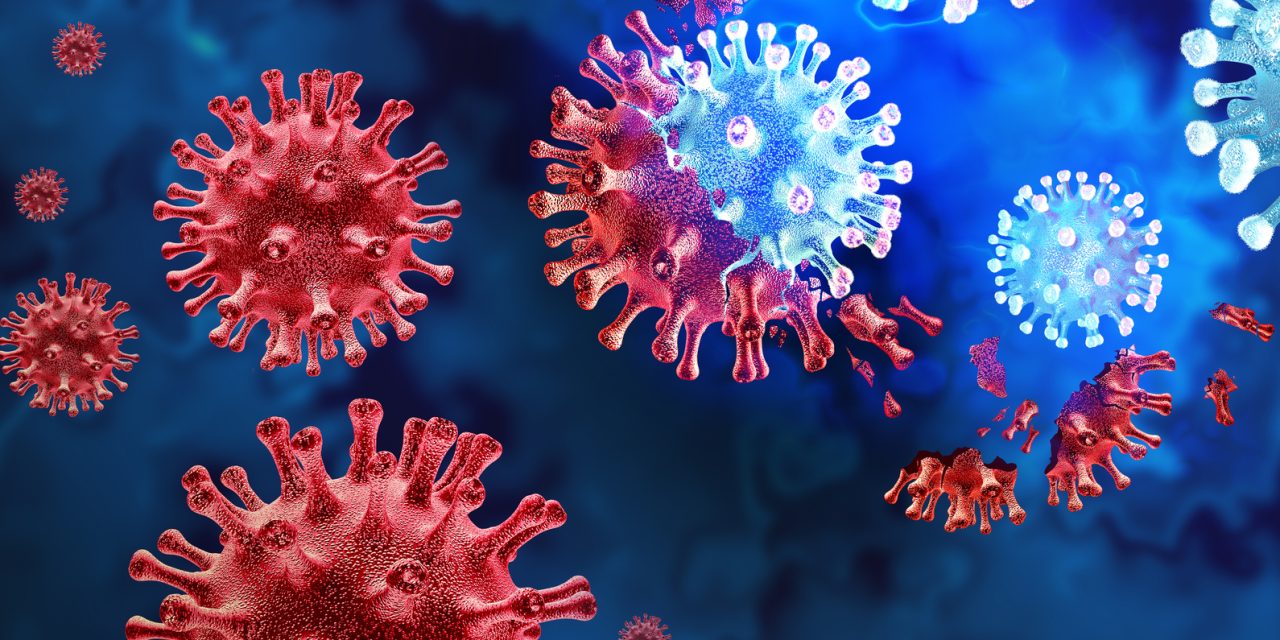 WASHINGTON—The cobas® HIV-1/HIV-2 Qualitative Test for use with the fully automated cobas 6800/8800 Systems is now FDA approved.
WASHINGTON—The cobas® HIV-1/HIV-2 Qualitative Test for use with the fully automated cobas 6800/8800 Systems is now FDA approved.
This “real-time” test, which is made by Roche Diagnostics, allows healthcare professionals to diagnose with a single assay that can differentiate HIV-1 and HIV-2, thus allowing the provider to make appropriate treatment recommendations.
The test, according to FDA approval documents, is “intended to be used as an aid in diagnosis of HIV-1/HIV-2 infection. Detection of HIV-1 or HIV-2 nucleic acid is indicative of HIV-1 or HIV-2 infection, respectively. The presence of HIV-1 or HIV-2 nucleic acid in the plasma or serum of individuals without antibodies to HIV-1 or HIV-2 is indicative of acute or primary infection. The cobas® HIV-1/HIV-2 Qualitative may also be used as an additional test to confirm the presence of HIV-1 or HIV-2 infection in an individual with specimens reactive for HIV-1 or HIV-2 antibodies or antigens. The assay may also be used as an aid in the diagnosis of infection with HIV-1 and/or HIV-2 in pediatric subjects and pregnant women.”
However, FDA noted that the test is not intended for use in monitoring patient status or for screening blood, cell, or tissue products.
There are no known contraindications for use of the test, but the approval does include a number of limitations and cautions, including:
- False positive results may occur if carry-over of samples is not adequately controlled during sample handling and processing.
- False negative (non-reactive) results may be obtained when testing individuals undergoing anti-retroviral therapy (ART) or taking pre-exposure prophylaxis (PrEP) or post-exposure prophylaxis (PEP).
- Though rare, mutations within the highly conserved regions of a viral genome covered by cobas® HIV-1/HIV-2 Qualitative may affect primers and/or probe binding resulting in failure to detect the presence of virus.
- Invalid test results could occur due to interference with triglycerides at concentrations higher than 25 g/L and with human DNA at concentrations higher than 1.5 mg/L.
- A non-reactive test result does not exclude the possibility of infection with HIV. A comprehensive risk history and clinical judgement should be considered before concluding that an individual is not infected with HIV.
The new test fills a unique need, as there are no FDA-approved in vitro amplification tests for the qualitative detection of HIV-2 and only one FDA-approved alternative in-vitro nucleic acid amplification test for HIV-1.
In a prepared statement from the company, Thomas Schinecker, CEO of Roche Diagnostics, said “[B]eing able to reliably determine a person’s HIV status and accurately diagnose which HIV type they may have is crucial for patients and healthcare providers in preventing further community transmission and selecting an individual’s best treatment options.”
According to the company, research indicates that “50% of new HIV infections may be transmitted during the acute period, between three days and three weeks from the time of infection1. Current serology-based testing methods rely on the ability to detect an antibody or antigen response. As a result, they can fail to identify an infection if the person is tested prior to having a detectable antibody or antigen response, which can take several weeks to generate. The higher sensitivity of PCR technology, which is used with the cobas HIV-1/HIV-2 Qualitative Test, can reduce this time-to-detection period by one week or more. This significant reduction in time to detection is critical to improve personalized healthcare while curbing further disease transmission.”
Peggy Peck, Editor-in-Chief, BreakingMED™
Cat ID: 125
Topic ID: 79,125,125,190,27,28,192,150,725,925


